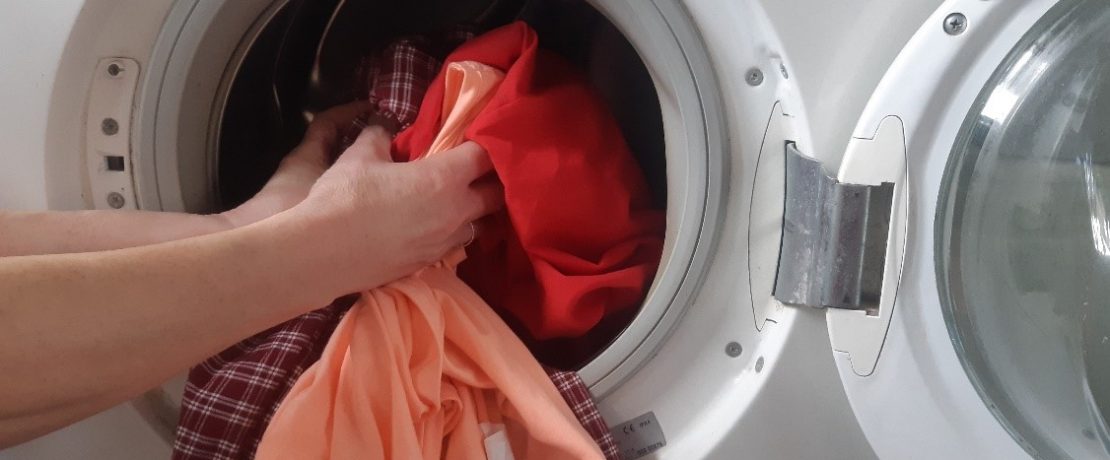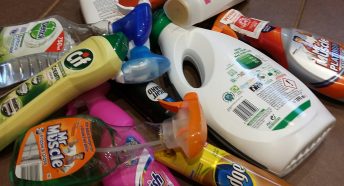Saving the planet from the laundry room
Our concern for the environment and the need to mitigate the climate emergency underpin everything we do. With this as context, our trustee Terry Over has researched the impact on the planet of the simple act of doing household laundry. His findings are startling. In this article he presents his research and provides recommendations for how we can all adopt more sustainable clothes washing habits that will reduce energy use and thus carbon emissions, reduce water use, and be less polluting of our water resources.
Saving the planet from the Laundry room – the art of sustainable clothes washing
There are so many inter-woven consequences to the way I live my life. Just one task that I carry out each and every week could have repeated harmful effects on the environment without me realising it. I discovered that washing my clothes is one such task.
The Office of National Statistics estimates that each UK household carries out 260 laundry wash loads per year on average. Nearly all of them, some 7 billion wash loads, use a washing machine. The washing machine is an amazing labour-saving device that changed our households dramatically but there are a variety of things that need to combine for each load of successful laundry washing.
The issues
Firstly there is the electricity required to operate the washing machine, then there is the water for the clothes to wash in, the energy to heat the water, the detergent to remove the dirt and finally the draining of the waste water and its contents. Well, not quite finally because here in the UK, 58% of households have a tumble drier which needs electricity to dry that washing.
Just like modern life in general there are so many settings choices to make when loading a washing machine – temperature, fabric, spin speed, time and other options – and depending on our choice the environmental consequence can vary tremendously.
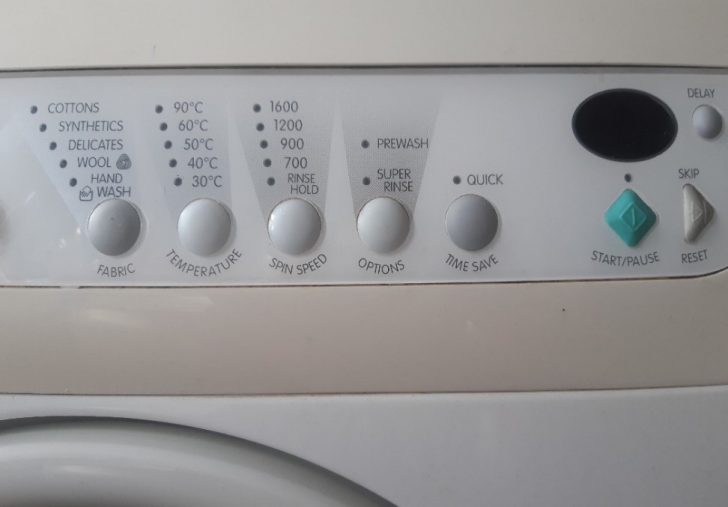
- Clean water use could be 60 litres per wash load which is 15,600 litres per year and approximately £50 worth of our household water bill. Water is a precious resource and requires energy to pump it to our homes which affect its carbon footprint.
- Electricity use on average in the UK is 0.6 kWh per wash which is 156 kWh/year and approximately £25 worth of our utility bill. The UK electricity grid is still circa 50% reliant on fossil fuel.
- Detergent is generally overused and a quick investigation of the ingredients in our laundry detergents will reveal that it is not the most environmentally friendly of products that we are releasing into our rivers and seas. Waste water treatment plants will filter some but not all synthetic chemicals and endocrine disruptors are a real issue for our marine biodiversity and probably our own health.
- Some washes can be carried out at 20 degree C whilst some manufacturers have a 90 degree C wash. The higher the temperature the more electricity is required.
- The 60 litres of waste water will cost us approximately another £50 per year and use water treatment plant energy, but of more concern is that it deposits vast quantities of plastic microfibres in our seas and rivers; plastic that will be around for ever and get consumed by sea life that will work its way up the food chain until more and more of us will be eating plastic.
But the great thing is that each of us can make a difference by just changing how we do that one chore that we currently do 260 times per year.
The solutions
- The best solution is simply to do less washes. Wear clothes more times before putting them in the wash. Hang worn clothes to simply “air” rather than put them in the washing basket. Only do full load washes.
- Wash on the lowest temperature possible as heating the water is the most energy-intensive part of the process. Using 20°C instead of 40°C could reduce running costs by 62%
- Use the shortest cycle. Shorter cycles use less water and less energy. The added bonus is that a short cycle causes less damage to your clothes over time so helps them last longer.
- Ensure your electricity tariff is a 100% green tariff meaning all your electricity use is from a renewable energy source.
- Switch from using everyday brands of laundry products to environmentally friendly detergents that contain ingredients that do not harm the environment, through their production or disposal
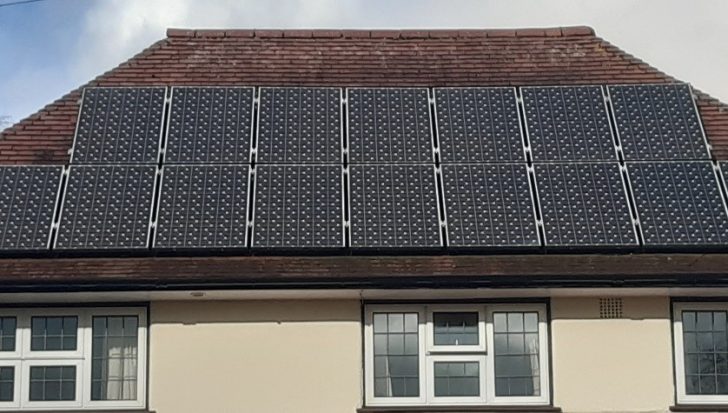
We stopped using laundry powder, liquid or tablets. We stopped using fabric conditioner. We stopped using stain remover. We investigated using more eco-friendly liquids from SESI or Ecoleaf but in the end we started using Soapnuts. (Soapnuts or Soapberries are dried fruit shells which contain real natural soap called saponin, which is released when they come into contact with water). So, the key is saponins.
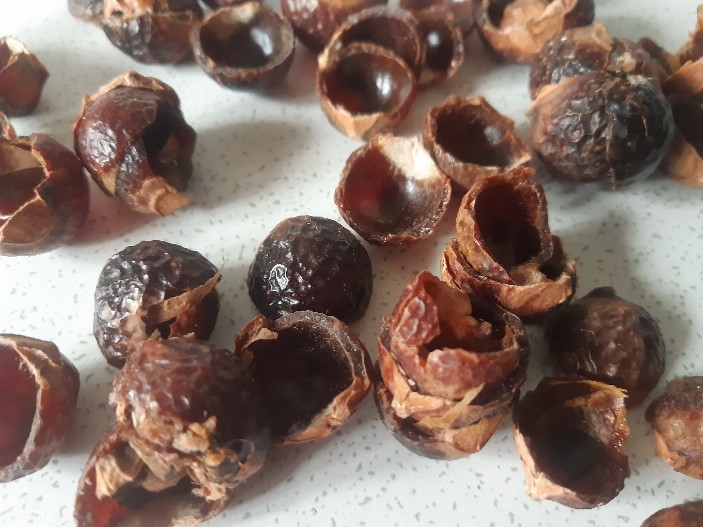
But Soapnuts have to be transported from India and our western desire could cause supply issues there, so now we use conkers (with a few drops of pure essential oils). Yes, the glossy brown seeds of the horse chestnut tree, collected in bulk in the autumn, brown skins removed, white seed diced into small pieces, dried for storage and re-hydrated for laundry liquid to enable low temperature washing when we need some.
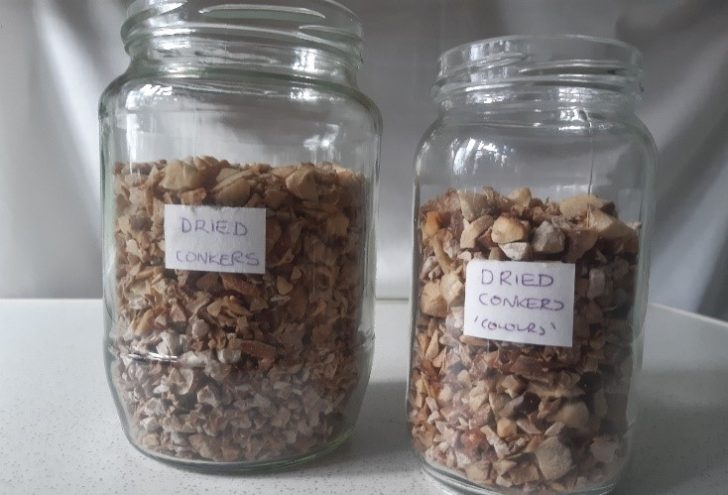
In the summer we collect the grey wastewater and use it to water the garden. The fact that our water now contains hardly any harmful synthetic chemicals means it is a perfect use of 60 litres of water each wash, especially as climate change means our summers will get drier.
The hardest issue to address is the plastic microfibres that are in the wastewater, but solutions include:
- Buy less synthetic fibre clothes (polyester, acrylic, nylon) and more organic fibre clothes (organic cotton, linen, wool, silk)
- Install a microfibre filter to the washing machine outlet pipe
- Use other forms of microfibre capture such as Coraball or GuppyFriend.
- And finally, if possible, use the tumble drier less as this will save on energy use and damage to the clothes thereby reducing microfibre loss in the next wash.
When purchasing a new washing machine aim for the highest standard possible i.e. A+++ energy rating for improved efficiency, the best in-built microfibre filter possible and good water efficiency usage. But if you are not intending to buy a new washing machine – and it is best to make our appliances last as long as possible, with repair if necessary – then I encourage you to adopt all or a selection of the above tips to address the inter woven consequence that the weekly, or quintuple weekly, wash will place on the environment. Your next washday will be even more rewarding!
